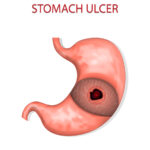Our Blog
What Causes Constipation?

There are multiple things that can cause constipation. Constipation can mean different things to different people. Some think it means infrequent stool passage, while others say it is hard stools that are difficult to pass. Constipation is defined medically as fewer than three stools per week, and severe constipation as less than one stool per week. Hard stools and difficult-to-pass stools are just symptoms of constipation. One of the biggest problems that comes with constipation is that when the body’s normal elimination procedures are slowed, it’s normal method to eliminate toxins is also impacted and the resultant toxin build-up begins to impact our health.
Irritable Bowel Syndrome (IBS)
IBS Affects the large intestine or the colon and is a chronic condition. It needs to be managed by a program that addresses its cause and includes diet and exercise. IBS symptoms range from mild to severe in people. Constipation from IBS is very uncomfortable. The body may be hampered from its normal ability to digest certain foods properly, and a blockage can result. People affected by IBS often find a measure of relief by eating more fiber or using appropriate supplements.
Eating Disorders
Constipation is often associated with malnutrition. People with eating disorders often experience malnutrition, and they become constipated. Restricting the intake of food and purging can contribute to bowel blockage. If you are suffering from an eating disorder, it takes time to treat and heal the body, but it is possible to restore healthy nutrition.
Not Eating Enough Fiber
The fiber in your diet plays a massive role in keeping your bowels regulated and your organs healthy and functioning. Fiber can be found in fruits, plant foods, vegetables, nuts, grains, seeds, and beans. If you are trying to ease constipation, you should consume more fiber-rich foods regularly. However, if you are gluten sensitive, eating grains as a source of fiber may actually complicate your problem. And, if your normal gut bacterial makeup is out of balance, your body may have difficulty processing the fiber and you may experience other symptoms of distress such as gas or bloating.
Too Much Dairy
The protein and lactose in dairy products can lead to constipation. This can also lead to bloating and gas in some people, especially if dairy products are consumed in large portions. Eliminating or reducing dairy products in the diet may help improve your bowel movements’ regularity.
Medications
Often medications that you are taking can contribute to constipation. Medicines that are used to treat high blood pressure, for example, can cause dehydration which in turn can lead to constipation. Some antidepressants also interfere with the nerves that stimulate the bowels and results in GI issues. Pain relievers and opioids can cause constipation, and the overuse of laxatives can contribute to constipation.
Diseases
People with diabetes often experience constipation. Parkinson’s disease and multiple sclerosis can also lead to it as well. Doctors say that any condition that affects the abdominal area and digestive tract can lead to GI problems.
The thyroid gland produces hormones that affect our metabolism. It then releases these hormones into the bloodstream. The bloodstream goes to most organs on our body, including the bowel. If you have an under-active thyroid gland referred to as hypothyroidism , the decrease in thyroid hormones that results can contribute to constipation.
In addition, microbial imbalances such as parasites, infections or the overuse of antibiotics can result in imbalances in our normal gut bacteria. This can contribute to constipation by altering and slowing the normal digestive processes that break down our food.
Stress
Anxiety and stress are apparent factors when it comes to constipation and something most people deal with daily. Stress can affect each body differently and in many different ways. The body may alter the nerve and blood supply to the intestines in response to stress, because not only are people are less likely to eat healthily, drink water, and exercise as they should , but also they can remain in a constant sympathetic state. The brain and the gut have a connection, so when we are stressed, the nerve and blood supply to the gut can change as our digestion functions slow as we shift into “fight or flight” mode.
Let Us Help
If you have any questions or concerns about what might be causing you to experience constipation and how to deal with it, please contact our office. The Gut Authority would love to set up an appointment with you and see how we can help you become healthier. We are located in Daphne, Alabama, but we serve patients in Alabama, Mississippi and Florida.




